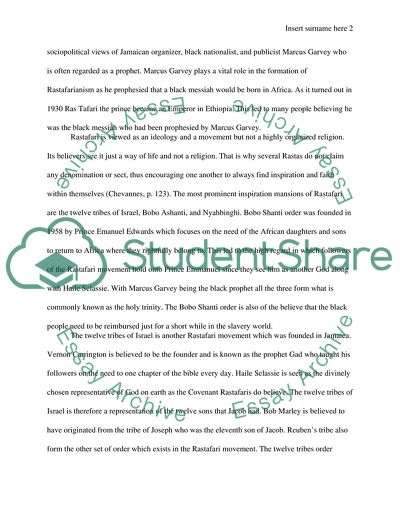Cite this document
(Rastafari: Roots and Ideology Essay Example | Topics and Well Written Essays - 1500 words - 27, n.d.)
Rastafari: Roots and Ideology Essay Example | Topics and Well Written Essays - 1500 words - 27. https://studentshare.org/religion-and-theology/1790787-essay
Rastafari: Roots and Ideology Essay Example | Topics and Well Written Essays - 1500 words - 27. https://studentshare.org/religion-and-theology/1790787-essay
(Rastafari: Roots and Ideology Essay Example | Topics and Well Written Essays - 1500 Words - 27)
Rastafari: Roots and Ideology Essay Example | Topics and Well Written Essays - 1500 Words - 27. https://studentshare.org/religion-and-theology/1790787-essay.
Rastafari: Roots and Ideology Essay Example | Topics and Well Written Essays - 1500 Words - 27. https://studentshare.org/religion-and-theology/1790787-essay.
“Rastafari: Roots and Ideology Essay Example | Topics and Well Written Essays - 1500 Words - 27”. https://studentshare.org/religion-and-theology/1790787-essay.


